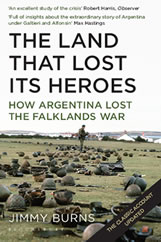Whatever last night´s El Clasico is remembered for, it won´t necessarily be for its football. The game was not so much a battle between two teams, but a series of individual encounters focused on a duel for supremacy between players of different nationalities, neither of the two Spanish -Messi and Ronaldo.
Brilliant as their goals were, each have scored better ones, and their involvement in the collective efforts of their colleagues insufficient to determine the supremacy of one side or the other. As for the teams, Tito Vilanova´s Barca still lacks the fluidity and intricate inter-play that marked the best of the Guardiola era, while Mourinho´s Real Madrid counter-attacks were missing their characteristic ruthlessness and accuracy.
By contrast , the pro-Independence of Catalonia mosaic that covered the stadium on the 17 minute 14 seconds of the game was a masterful exercise in political propaganda pulled off with the brutal effectiveness of a bomb attack. It lasted less than a minute but its impact was immediate and widespread , its fall-out enduring, its longer term consequences a subject of unresolved, and acrimonious debate which divides today´s media in Madrid and Barcelona.
The mosaic had a certain Gaudiesque outrageous flair about it, but was not a spontaneous act. Rather it was a meticulously planned political stunt, designed to momentarily divert the attention of a mass global audience of soccer fans and focus them on a political issue that while some may be familiar and indeed sympathetic with (there were Scottish and Palestinian flags in the Camp Nou last night), the majority are clueless about.
Until last night, I doubt for instance that many followers of La Liga outside Spain had the number 1714 registered in their heads as the date that Catalans lost their rights after backing the wrong non-Spanish king in the War of Supremacy. Now fans from Tangiers to Tokyo will at least now know the totemic nature of a date in the modern context of Catalonia´s conflict with Madrid over the independence issue – a key political battle , the outcome of which will have a profound impact on the future composition of the Spanish state, and potential reverberations across Europe.
For last night the pro-Independence campaign managed to outflank the club´s own president Sandro Rosell who was elected on a pragmatic and essentialy apolitical platform at odds with the radical Catalan nationalism of his predecessor Joan Laporta-today a fervent independista. In an instant,at 17.14 exactly, the Camp Nou was politically radicalized with a collective passion not seen since 1977 when , within two years of the death of Franco, the stadium and the club helped promote a call for the return of regional government within a new democratic unified Spanish state, allowing thousands of Catalan and Basque flags to be flown for the first time in a Barca stadium since the Spanish Civil War.
Back then, thirty-five years ago, there was an evident synergy between the mood in the Camp Now and the wishes of a clear majority of Catalans and non-Catalans across a broad centre to left political spectrum in Spain united in the spirit of democracy after four decades of dictatorship. Today, increasingly frustated and angry Catalan nationalists are on a collision course with the centre right Spanish government led by Mariano Rajoy- what Catalonia´s regional president Arturo Mas proclaims as a right to self’determination-an election followed by a referendum posing the choice of independence stubbornly dismissed by Madrid as an irrational and constitutionally illegal separatist act that threatens the disintegration of a European state.
For Catalan independendistas , last night´s El Clasico– steeped as it has been for decades in the political mythology that gives the sporting encounter its unique dynamic and excitement, was an opportunity clearly not to be missed. A certain air of complicity engulfed members of the Barca presidential box which included Mas himself , sitting next to Rosell, two seats away from Real Madrid´s clearly uncomfortable VIP visitor president Florentino Perez.
The controversial mosaic , tolerated by FC Barcelona´s management and not smuggled in, upped the political ante by intruding on the game rather than serving as a prologue to it as had the earlier official club mosaic, with its traditional and politically neutral Barca hymn.
Whether the cause of Catalan independence –as opposed to a more moderate automous Catalonia with more rights within rather that outside a Federalist Spain -is genuinely popular enough to secure a convincing majority of voters remains to be seen. As uncertain is the voting intentions of Barca fans , and in what political direction Rosell takes the club from here on.
But last night´s generally peaceful atmosphere showed signs of bubbling over. Near the Camp Nou a group of female Real Madrid fans suffered sexual verbal abuse, while a male Real Madrid fan walking on his own was surrounded and physically threatened by local fans who in turn found their access to some bars blocked by riot police.
And the 17.14 stunt had an aggressiveness about it that smacked of populist nationalism reminiscent of Real Madrid´s Santiago Bernabeu on a bad day, but unworthy of a sporting institution like Barca that defines itself as more than just a sporting club to be a cultural and social expression of Catalanism in its broadest democratic sense, open to the world.
As for the game itself, it delivered its own crude symbolism: the result-a 2-2 draw with missed opportunities on both sides- reflecting the Catalonia/Madrid political stalemate. Apart from the brilliance of superstars, its one saving grace was the way Real Madrid and Barca players, led by Iker Casillas and Xavi, embraced each other at the end of it all, in an image of respect and reconciliation that Spanish and Catalan politics tragically lacks.


Comments